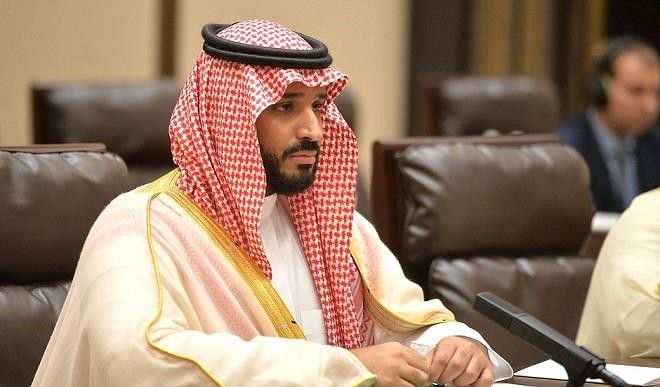Seven ways Saudi Arabia is changing
In recent times, news of aggressive changes taking place in Saudi Arabia abounds in the media. The 32 year-old crowned prince Mohammad Bin Salman for a while now has championed social and economic reforms under the catch phrase Vision 2030, with the objectives of remodeling the conservative country into a modern state. The young prince […]


In recent times, news of aggressive changes taking place in Saudi Arabia abounds in the media.
The 32 year-old crowned prince Mohammad Bin Salman for a while now has championed social and economic reforms under the catch phrase Vision 2030, with the objectives of remodeling the conservative country into a modern state.
The young prince told the Guardian UK that
“We are simply reverting to what we followed – a moderate Islam open to the world and all religions. 70% of the Saudis are younger than 30, honestly we won’t waste 30 years of our life combating extremist thoughts, we will destroy them now and immediately.”
Here are some changes since the emergence of Prince Mohammed less than 2 years ago, some of them championed by him or his father King Salman.
1. NEOM: The prince announced the launch of an ambitious independent economic zone that will gulped $500bn (£381bn) christened NEOM.
Neom is situated between Saudi Arabia, Jordan and Egypt.
Prince Mohammed said: “We are a G20 country. One of the biggest world economies. We’re in the middle of three continents. Changing Saudi Arabia for the better means helping the region and changing the world. So this is what we are trying to do here. And we hope we get support from everyone. The new economic zone is to be established on 470km of the Red Sea coast, in a tourist area that has already been earmarked as a liberal hub akin to Dubai, where male and female bathers are free to mingle.
The announcement was followed by promotional video and a full-fledged interactive website.
Luxury beach resort governed by international rules: In August 2017 the Prince revealed plans for a luxury beach resort where special laws allow women to wear bikinis instead of covering up their skin.
The government said the luxury Red Sea resort which will be located on a stretch of coast line in the northwest part of the country. And they will be “governed by laws on par with international standards”.
The Saudi Arabia’s public investment fund described the project as an “exquisite luxury resort destination established across 50 untouched natural islands”.
3. Islamic center tasked with vetting prophet sayings: In October 2017 King Salman ordered the establishment of an Islamic centre tasked with certifying the sayings of prophet Muhammed to counter terrorism.
According to Saudi ministry of culture and tourism, the center is to monitor interpretations of the Prophet’s teachings to prevent them being used to justify violence or terrorism.
4. Re-Open Cinemas: In November 2017 Saudi Arabia made move to allow cinemas to reopen from early 2018.
“As the industry regulator, the General Commission for Audiovisual Media has started the process for licensing cinemas in the Kingdom,” Minister of Culture and Information Awwad Alawwad said in a statement.
He added that
“We expect the first cinemas to open in March 2018.”
Cinemas were banned about 35 years ago.
Here is a trailer Wadjda the first feature film shot entirely in Saudi Arabia.
5. Women allowed into sports stadium: In 2018 Saudi arabain women would be allowed entrance into stadiums for sports events.
Families will be able to enter the stadiums in three major cities – Riyadh, Jeddah and Dammam.
Saudi Women ‘to be allowed driving licences’ : In September 2017 a decree ordered the ban on women driving to be lifted.
Saudi Arabia is the only country in the world that had forbidden women from driving. Rights groups have campaigned for years to allow women in Saudi Arabia to drive. Some Saudi women have been fined and imprisoned for driving.
The decree has ordered that a ministerial body be set up to give advice within 30 days and that the order will be implemented by June 2018.
Grants citizenship to Robot: Saudi Arabia became the first country to grant a robot citizenship. Sophia a humanoid created by Hanson Robotics was granted citizenship at the Future Investment Initiative held in Riyadh.
In response Sophia said “It is historical to be the first robot in the world to be recognised with citizenship.
